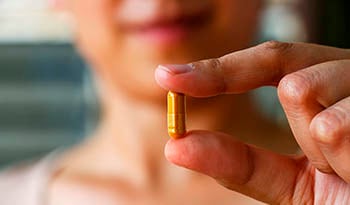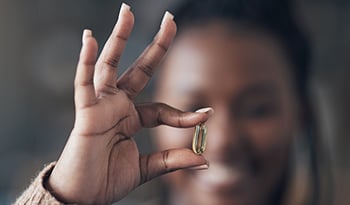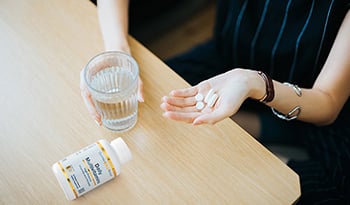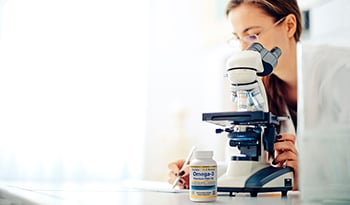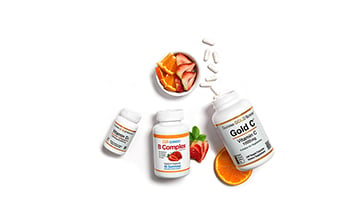Is It Safe To Buy Vitamins On Amazon?
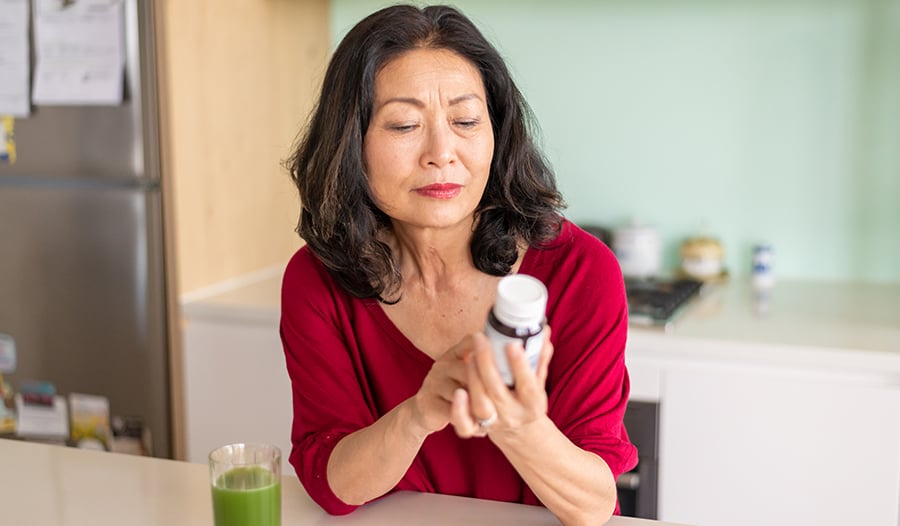
Everyone wants to be healthy, and many people take vitamins and supplements to achieve their health goals. As a result, the supplement industry is booming. Some studies estimate it will be worth a staggering $300 billion United States dollars (USD) by 2028. With supplement use on the rise, more online retailers are allowing consumers to purchase various supplements from the comfort of their homes.
And consumers are responding. While many customers still purchase their dietary supplements from physical or brick-and-mortar stores, a growing number of consumers do more supplement shopping online because of convenience and a wider selection of products.
Studies suggest that a consumer is more likely to buy a supplement online when five very important factors are present: how effective the product is perceived to be, how safe the product is, whether the supplement is priced reasonably, whether the purchase is convenient, and whether the online platform is safe for supplement purchases.
These factors often lead consumers to purchase from well-known and trusted e-commerce giants like Amazon, which raises an important question. Is it safe to buy supplements from Amazon?
Let's examine why purchasing vitamins and supplements on Amazon may be a cause for concern.
How Does Third-Party Selling Work On Amazon?
Amazon, one of the world’s largest e-commerce platforms, sells everything from books to baby clothes—and plenty of supplements like vitamins, minerals, and herbal products. While trusted by millions, some question if it’s safe to buy vitamins there. To find out, let’s take a closer look at how Amazon operates.
Many people may be unaware of how Amazon works. For example, a shoe shop owner can set up an online storefront on the Amazon platform to sell their wares.
Once the seller sets up a shop, they can display their shoes for purchase on the Amazon website. A customer purchases the shoes on Amazon, and the order is shipped, often by Amazon itself, from an Amazon warehouse that contains the seller's product. The shoe seller is referred to as a third-party seller.
In this example, Amazon fulfills the order by packaging and shipping the shoes to customers, but the e-commerce giant doesn't manufacture the shoes. This is often the case with the majority of products sold on and shipped by Amazon, and vitamins and supplements are no exception.
Since individual sellers may create their own online storefronts and sell supplements on Amazon as third-party sellers, this could be a cause for concern. Why? Amazon operates as an open marketplace with minimal regulation. With millions of vendors, it allows virtually anyone to become a seller.
Amazon Vitamins And Supplements: Real Or Fake?
Reports of fake supplements on Amazon have been a rising concern in recent years. Legitimate supplement companies are often involved in the fight against deceitful individuals who prey on unsuspecting consumers.
How can this happen? Any unethical person can counterfeit labels from legitimate supplement companies, put them on a bottle of subpar supplements, and sell them through the Amazon platform as if they were legitimate.
In many cases, the supplement you're sold may not even contain any ingredients listed on the label. For example, the reputable supplement company Tru Niagen, which makes a supplement to boost nicotinamide adenine dinucleotide (NAD+), reported an increase in sales of the fake supplements on Amazon. Scammers branded the supplements as Tru Niagen supplements, but the authentic ingredients were unknown. Tru Niagen stressed that these fake Amazon supplements may not even contain any of the ingredients listed on the label. Tru Niagen is far from the only company to fall prey to scammers who want to make easy money selling counterfeit supplements on Amazon.
The legitimate and highly regarded supplement company Pure Encapsulations was made aware of several of its products being sold as counterfeit supplements on Amazon for years, with the most recent case occurring in April 2024. Some of these supplements, like magnesium glycinate, or a potent multivitamin, were popular and beloved. In 2023, a resident of New Jersey was arrested because he had been selling a fake version of Pure Encapsulations L-glutamine on Amazon. Pure Encapsulations was one company on a list of many that fell victim to the Amazon fake supplements scam. Reports suggest that scammers sold counterfeit supplements like psyllium husk fiber capsules and men's multivitamins branded with NOW Foods labels.
Fungi Perfecti, the manufacturer of the Host Defense line of medicinal mushrooms, reported over 20 different Amazon sellers of fake mushroom supplements branded as their own.
These counterfeit supplements on Amazon are illegal and possibly ineffective—they may even be dangerous.
The Risk Of Buying Vitamins On Amazon
In many countries, vitamins and supplements aren't regulated in the same way as pharmaceuticals. For instance, the European Union (EU) regulates dietary supplements in a way that is similar to how it monitors food. In the United States, the Food and Drug Administration (FDA) doesn't regulate supplements like it regulates pharmaceuticals.
According to the FDA, the administration does not approve dietary supplements and only regulates them after they are introduced into the marketplace for consumption by the public. Therefore, any unscrupulous individual can concoct a supplement, market it with dubious claims, and sell it to an unsuspecting public through an online platform like Amazon by using the public's trust in the e-commerce giant as a type of legitimacy. It would be nearly impossible for the FDA to respond effectively to this potentially dangerous practice quickly enough.
One such case of dangerous supplements is the unfortunate occurrence in the late 1990s to early 2000s with the dietary supplement Xenadrine. Xenadrine was marketed for weight loss and contained the herb ephedra, also called Ma Huang. While Ma Huang is used safely in Traditional Chinese Medicine, the supplement Xenadrine contains ephedra, an herb that contains ephedrine. Ephedrine acts like adrenaline in the body by increasing the heart rate and stimulating the nervous system. Xenadrine combined ephedra, green tea extract, and other herbal supplements to make a dangerous concoction. This combination proved to be lethal for many individuals. While the FDA eventually banned ephedra, immoral scammers and their counterfeit Amazon supplements still fake out unassuming consumers to this day.
When buying Amazon vitamins and supplements, a consumer may believe that they are receiving a high-quality product, but they might be receiving an ineffective or, even worse, toxic supplement.
Legitimate supplement companies prepare, test, and package their formulas based on research, expert input, good manufacturing practices, and quality control. Scammers don't. They may throw anything into a bottle, slap a fake label on it, and send it to the consumer through an online Amazon storefront in hopes of making a quick sale.
How To Avoid Buying Counterfeit Vitamins And Supplements
Few things are more disheartening and frankly, infuriating, than buying a supplement for its health benefits only to find that it was a waste of money and potentially harmful to your health.
Over a decade ago, a 2015 bombshell story reported by CBS News uncovered a scandal in the supplement industry. The story reported on a New York State Attorney General study. It was found that only 21% of the supplements tested from store brands like Walmart and Walgreens contained the deoxyribonucleic acid (DNA) of the plants that the labeled products claimed to contain. While this may be disheartening, this number may be even lower with Amazon supplement fakes.
So, how can you avoid buying fake vitamins and supplements on Amazon?
Review Seller Information
Ensure that the brand sells the product you purchase. For example, if you're looking for a NOW Foods product, ensure it is being sold by the brand itself or a brand-verified seller.
Look for authorized resellers - like iHerb - of your favorite brands. Authorized resellers work directly with brands and are permitted to resell a company's supplements.
Contact The Seller Directly
Contact the company directly if you're unsure of a particular brand's authorized Amazon resellers.
Check Labels
Check any supplement bottles you may have purchased from Amazon for small but noticeable differences in labels, such as misspelled ingredients or slightly different colors, compared to legitimate brands you know and trust.
Buy From Trusted Sources
Alternatively, you could purchase your vitamins and supplements from online platforms exclusively dedicated to health and wellness, like iHerb, to avoid the risk of purchasing Amazon supplement fakes.
Takeaway
So, is it safe to buy vitamins and supplements on Amazon? It is possible with the right amount of due diligence, vigilance, observation, and knowledge. If you purchase supplements on Amazon, it's wise to be wary of scammers and unscrupulous individuals who may be more interested in your money than your health.
References:
- Ang JY, Ooi GS, Abd Aziz F, Tong SF. Risk-taking in consumers' online purchases of health supplements and natural products: a grounded theory approach. J Pharm Policy Pract. 2023;16(1):134. Published 2023 Nov 3. doi:10.1186/s40545-023-00645-x
- CBS News. Herbal supplements targeted by New York attorney general. CBS News. Published February 3, 2015. https://www.cbsnews.com/news/herbal-supplements-targeted-by-new-york-attorney-general/
- ConsumerLab. How can I avoid counterfeit supplements? ConsumerLab.com. https://www.consumerlab.com/answers/avoid-counterfeit-supplements/counterfeit-supplements
- Djaoudene O, Romano A, Bradai YD, et al. A Global Overview of Dietary Supplements: Regulation, Market Trends, Usage during the COVID-19 Pandemic, and Health Effects. Nutrients. 2023;15(15):3320. Published 2023 Jul 26. doi:10.3390/nu15153320
- European Food Safety Authority (EFSA). Food Supplements. EFSA. Accessed April 15, 2025. https://www.efsa.europa.eu/en/topics/topic/food-supplements
- Federal Trade Commission (FTC). FTC Takes Action Against Marketers of Top-Selling Xenadrine EFX. FTC. Published July 14, 2005. https://www.ftc.gov/news-events/news/press-releases/2005/07/ftc-takes-action-against-marketers-top-selling-xenadrine-efx
- Kim TJ, LeBourgeois HW 3rd. Banned, but Not Forgotten: A Case of Ephedrine-Induced Psychosis. Prim Care Companion J Clin Psychiatry. 2004;6(3):136-137. doi:10.4088/pcc.v06n030 Sachdeva R, Sivasankaran S, Fishman RF, Zarich SW, McPherson CA. Coronary thrombosis related to use of Xenadrine RFA. Tex Heart Inst J. 2005;32(1):74-77
- Pure Encapsulations. Amazon FAQs. Pure Encapsulations. Updated April 2024. https://www.pureencapsulationspro.com/amazon-faq
- Tru Niagen. Urgent Health & Safety Update: Beware of Counterfeit Tru Niagen. Tru Niagen. https://www.truniagen.com/blogs/tru-niagen-labs/urgent-health-safety-update-beware-of-counterfeit-tru-niage
- U.S. Food and Drug Administration. Dietary Supplements. FDA. Updated March 7, 2024. https://www.fda.gov/food/dietary-supplements
- U.S. Food and Drug Administration. FDA 101: Dietary Supplements. FDA. Updated March 16, 2023. Accessed April 15, 2025. https://www.fda.gov/consumers/consumer-updates/fda-101-dietary-supplement
DISCLAIMER:This Wellness Hub does not intend to provide diagnosis...















































































 Table of Contents
Table of Contents




